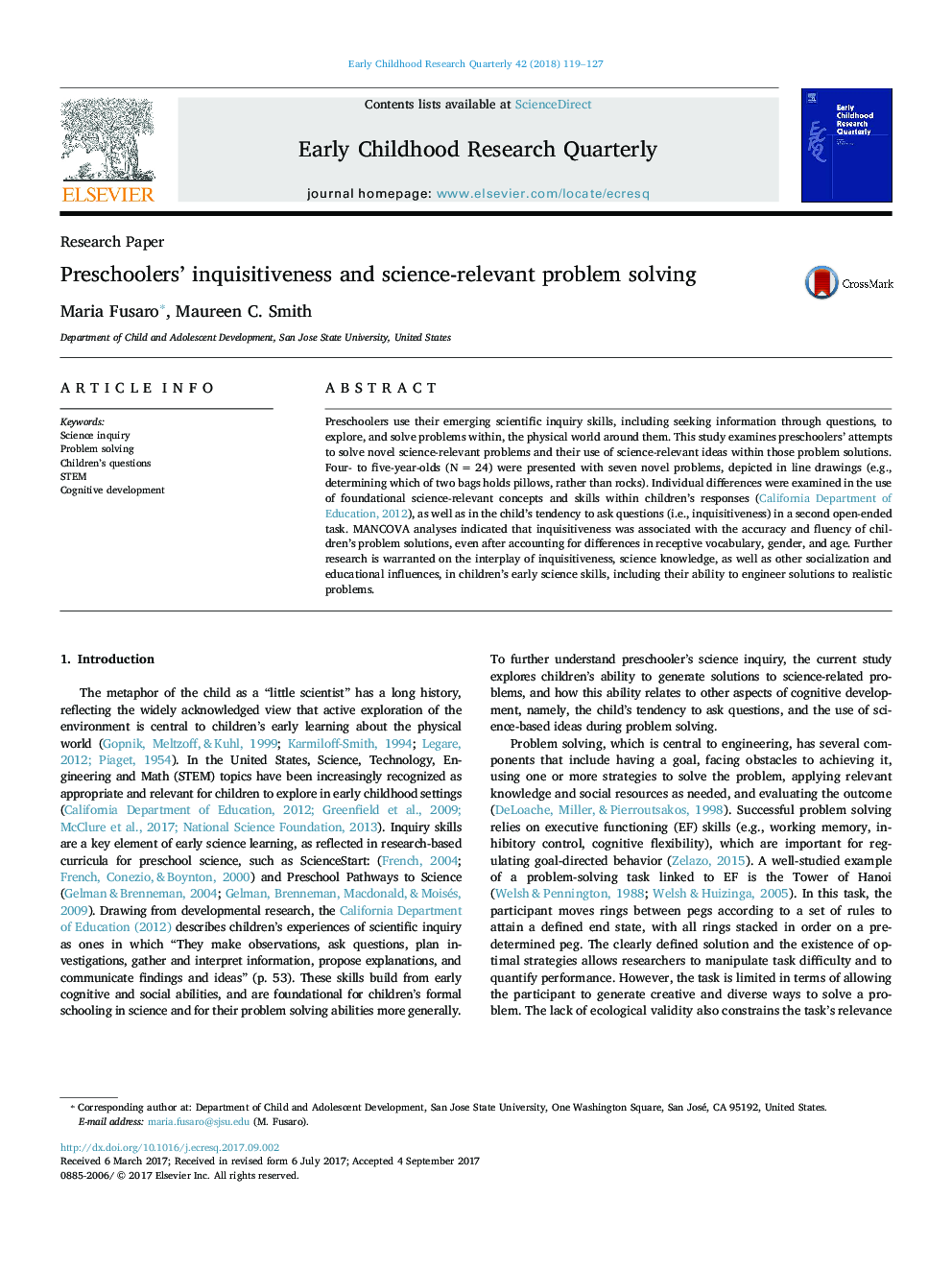| کد مقاله | کد نشریه | سال انتشار | مقاله انگلیسی | نسخه تمام متن |
|---|---|---|---|---|
| 4938167 | 1434713 | 2018 | 9 صفحه PDF | دانلود رایگان |
- Preschoolers solved novel, science-relevant problems.
- Individual differences in inquisitiveness predicted problem-solving scores.
- Variability in scores was not reducible to differences in age or vocabulary.
- Additional research on early inquisitiveness and engineering is warranted.
Preschoolers use their emerging scientific inquiry skills, including seeking information through questions, to explore, and solve problems within, the physical world around them. This study examines preschoolers' attempts to solve novel science-relevant problems and their use of science-relevant ideas within those problem solutions. Four- to five-year-olds (NÂ =Â 24) were presented with seven novel problems, depicted in line drawings (e.g., determining which of two bags holds pillows, rather than rocks). Individual differences were examined in the use of foundational science-relevant concepts and skills within children's responses (California Department of Education, 2012), as well as in the child's tendency to ask questions (i.e., inquisitiveness) in a second open-ended task. MANCOVA analyses indicated that inquisitiveness was associated with the accuracy and fluency of children's problem solutions, even after accounting for differences in receptive vocabulary, gender, and age. Further research is warranted on the interplay of inquisitiveness, science knowledge, as well as other socialization and educational influences, in children's early science skills, including their ability to engineer solutions to realistic problems.
Journal: Early Childhood Research Quarterly - Volume 42, 1st Quarter 2018, Pages 119-127
